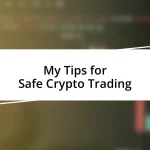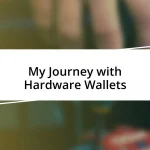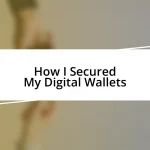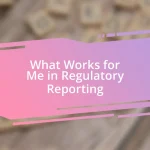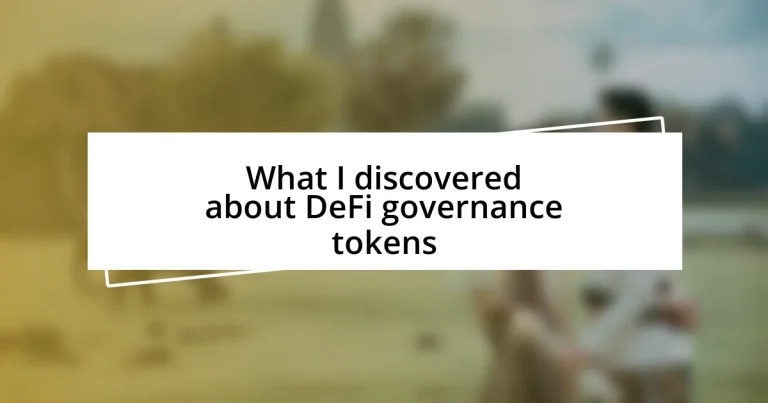Key takeaways not available due to an error.
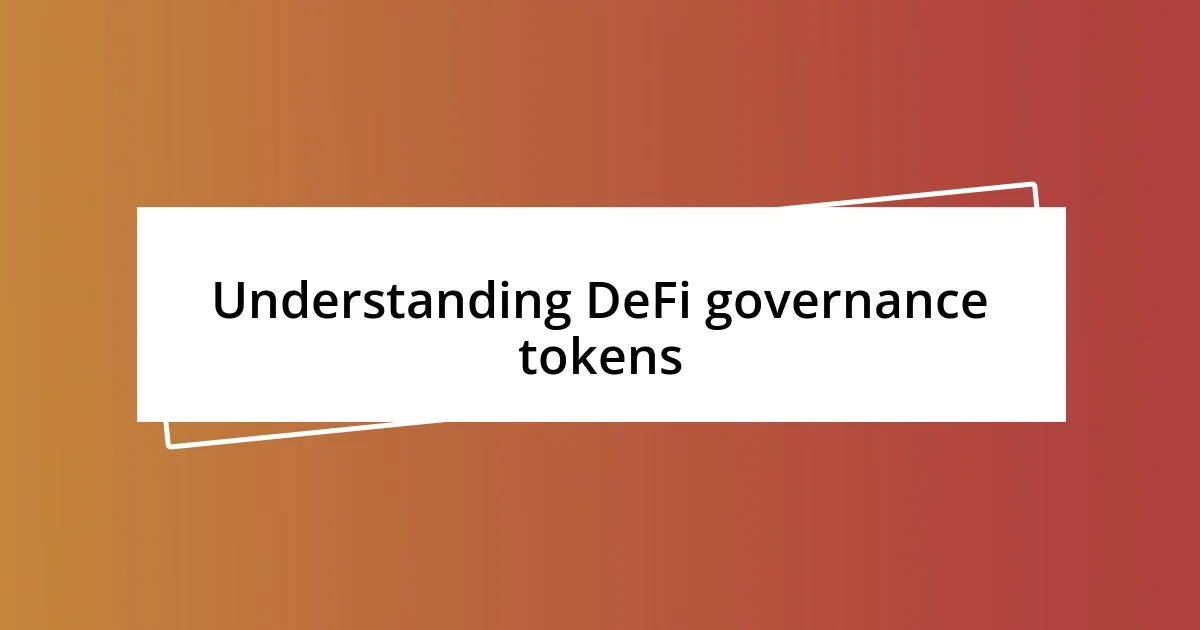
Understanding DeFi governance tokens
DeFi governance tokens are fascinating because they give holders a say in the decision-making processes of decentralized finance projects. I remember the first time I participated in a governance vote; it felt empowering to contribute to the future of a project I believed in. Isn’t it intriguing how the power dynamics shift when users make the rules instead of a central authority?
These tokens are much more than just assets; they represent an evolving philosophy of community involvement. I often think about how traditional finance usually sidelines individual opinions, but here, every voice can resonate in shaping a protocol. Have you ever wondered how it feels to influence the direction of a platform you actively use? It’s a unique experience that fosters a deeper connection to the ecosystem.
When you hold governance tokens, you’re not just an investor; you become a stakeholder in the project’s success. I’ve found that the sense of ownership and accountability often leads to more thoughtful participation in discussions. How does it change your perspective to know you can directly impact the platform you’re engaging with? It’s a profound shift that redefines our role in financial systems.
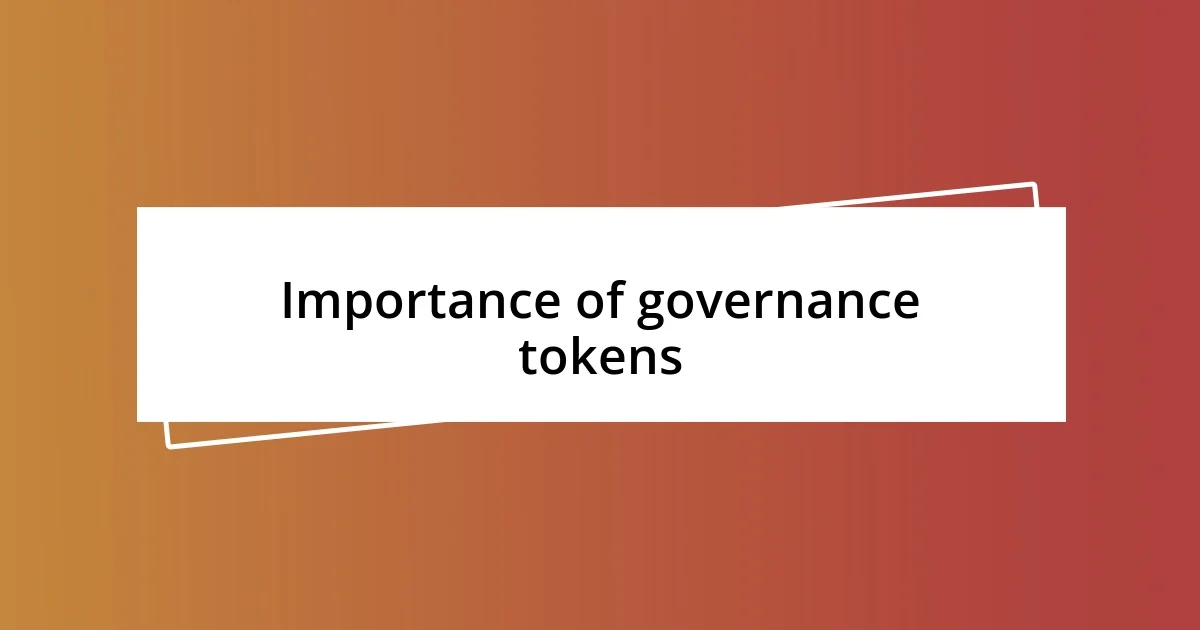
Importance of governance tokens
The importance of governance tokens cannot be overstated. They empower individuals and communities, creating an ecosystem where every participant can influence the trajectory of projects. I recall a moment when I cast a vote on a protocol that directly impacted my investments; it felt like I was standing at the helm of a ship steering it through new waters. There’s a certain thrill in knowing that my opinion matters.
Here are a few key reasons why governance tokens are crucial:
- Decentralization of Power: They shift control from a central authority to a diverse group of stakeholders, promoting fairness.
- Community Engagement: Holders are encouraged to voice their opinions, fostering active participation and collaboration.
- Incentivized Participation: Tokens often come with governance rewards, motivating users to stay involved and informed.
- Real-Time Feedback: Governance processes can adapt in real-time based on community voting.
- Alignment of Interests: When everyone holds a stake, decisions are made with the collective good in mind.
Experiencing the dynamic nature of governance tokens has shown me that they’re not just trends; they represent a new way of thinking about finance and community. Each vote I cast feels like a brick in the foundation of a more equitable financial future.
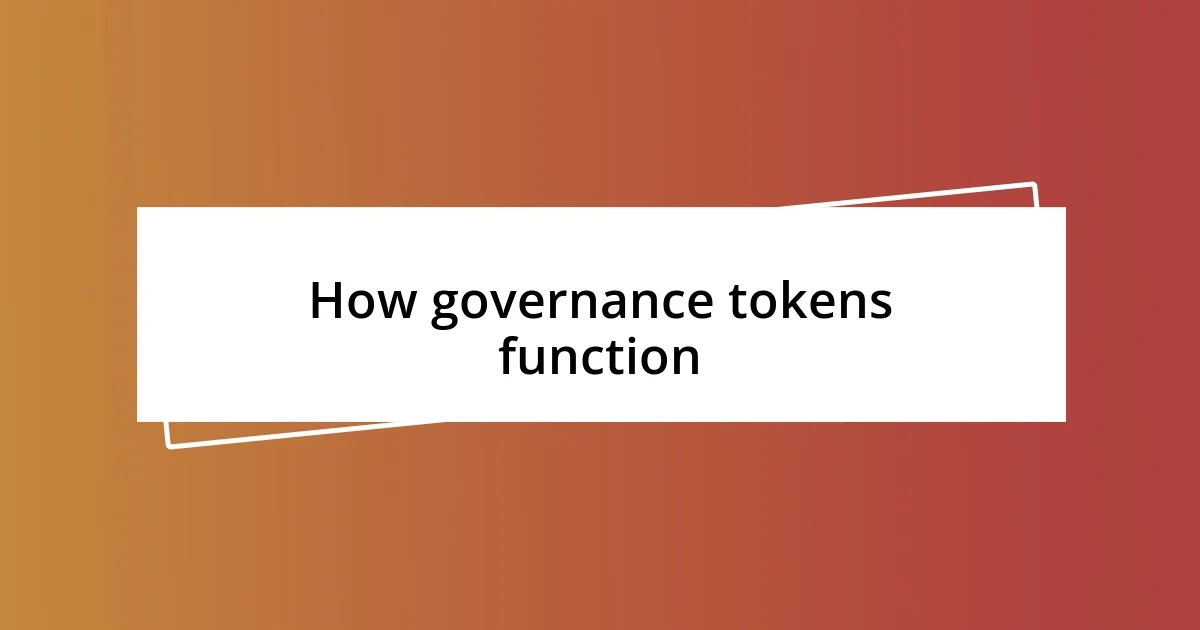
How governance tokens function
Governance tokens function as a means of decentralized decision-making within DeFi projects. When holders possess these tokens, they gain voting rights on key proposals related to the platform’s development, funding, and protocol changes. I vividly remember casting my first vote to update a liquidity pool; it was exhilarating to see my choices being considered alongside others in the community.
One key aspect of these tokens is the varying degrees of influence they offer. Some projects allocate votes based on the number of tokens held, while others employ quadratic voting, where the power of votes diminishes with quantity. I often think about how fair this approach can be; it encourages broader participation and prevents a few wealthy holders from dominating the decision-making process. Have you ever felt that your voice was drowned out in traditional settings? In governance tokens, that concern fades.
Furthermore, governance tokens create a sense of responsibility among holders. This encourages them to stay informed and actively engage with the community, contributing insights and feedback. A past experience that stands out for me is when the community held an emergency vote to address a critical bug. The speed and unity displayed through the decision-making process highlighted just how vital each participant’s role is in maintaining the project’s health. This collective engagement truly shapes the future of decentralized finance.
| Governance Token Feature | Description |
|---|---|
| Voting Rights | Token holders can vote on proposals affecting the project. |
| Power Distribution | Voting power can differ based on token quantity or employ methods like quadratic voting. |
| Community Engagement | Active participation encourages informed decision-making and deeper connections. |
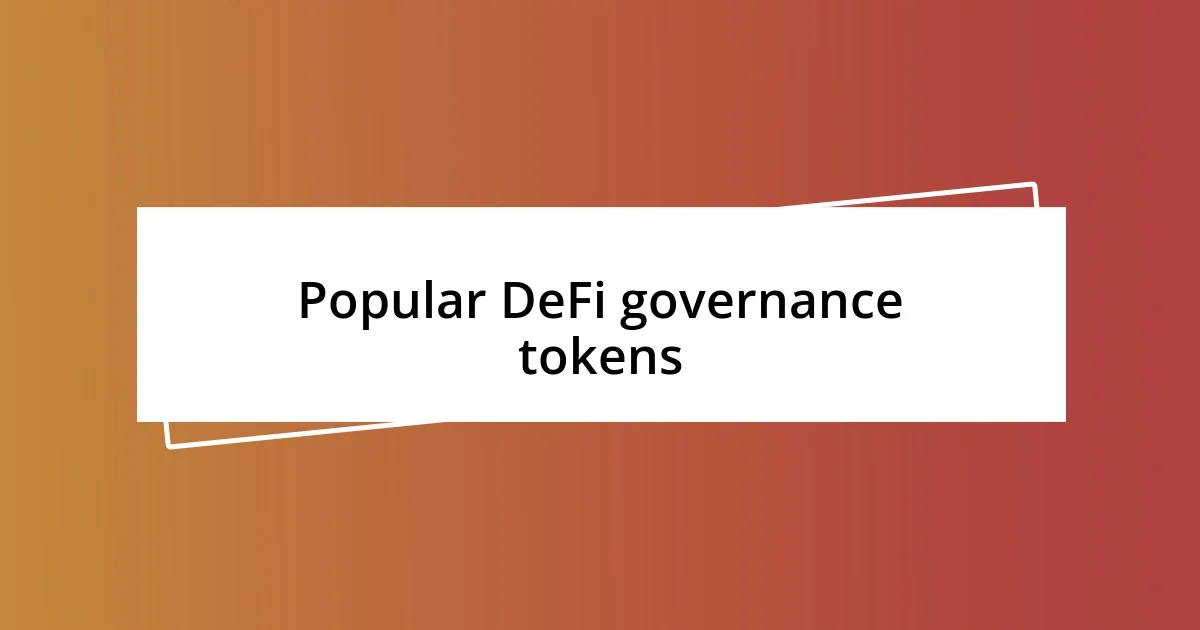
Popular DeFi governance tokens
One of the most notable popular DeFi governance tokens is Uniswap’s UNI token. I remember well the moment I acquired UNI and realized it granted me access to vital decision-making processes within the Uniswap platform. It felt like being handed the keys to a club where not just my contribution mattered, but also the collective insights of every member, fostering innovation and responsiveness to community needs.
Another token that stands out is Aave’s AAVE. This token has garnered attention not only for its governance powers but also due to its role in incentivizing responsible lending and borrowing practices. I was amazed when I voted on a proposal that aimed to improve the user experience. Seeing real-time changes emerge from our collective votes made me appreciate the dynamic nature of DeFi; it’s electrifying to witness ideas transform into actionable changes that enhance the platform for everyone’s benefit.
Lastly, we can’t overlook MakerDAO’s MKR token. The governance process here combines financial acumen with democratic participation, a blend I deeply value. A while back, a significant vote was held to address the stability of the DAI stablecoin. Thinking back, it was incredibly fulfilling to have an opportunity to influence the project’s direction based on my understanding of market conditions. Have you ever thought about how impactful your decisions can be in a space where every vote shapes the future? Tokens like MKR epitomize this potential, reminding us that every holder carries weight in the governance process.
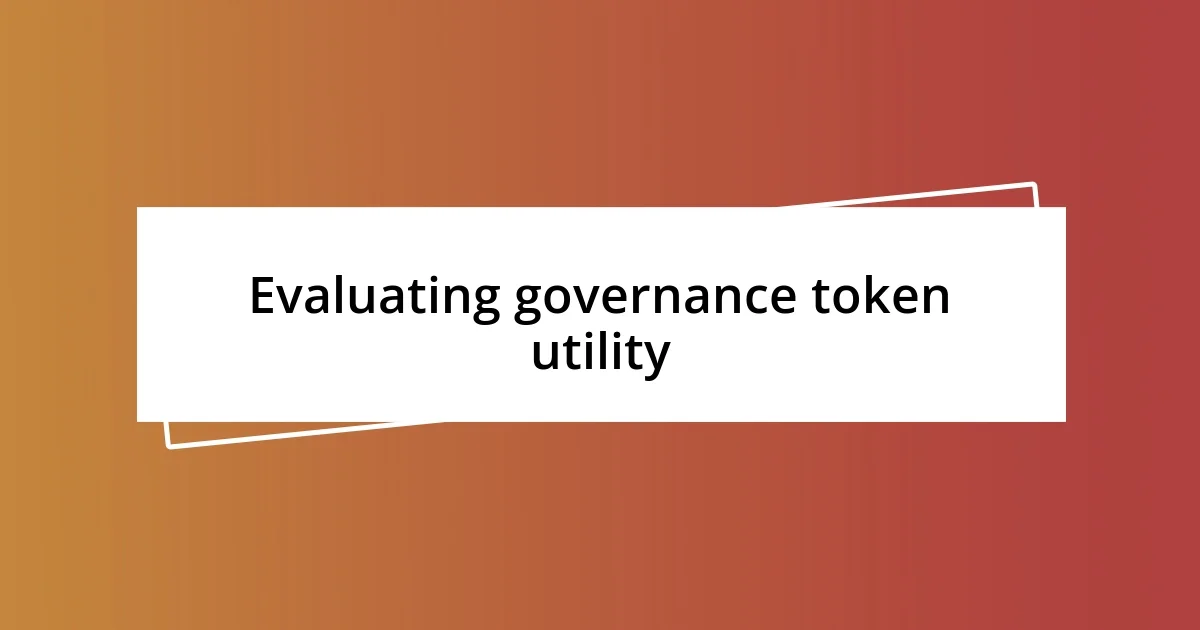
Evaluating governance token utility
Evaluating the utility of governance tokens can be quite enlightening. I think about the diverse roles these tokens play; they aren’t just tools for voting but act as keys to deeper involvement within a project. For instance, I recall the excitement I felt when I participated in a discussion about implementing a new feature—my opinion mattered, and that connection made me feel integral to the platform’s evolution.
The true value of governance tokens sits in their potential to create a well-informed electorate. When I first started my journey with DeFi, I was surprised at how much I needed to learn to vote effectively. Each proposal came with background information, encouraging me to research and engage critically. This transformative experience pushed me to grow my knowledge and truly understand the impact of my vote; have you ever realized how much learning comes from active involvement?
Moreover, the community aspect of governance tokens is particularly rewarding. They foster a shared sense of purpose among holders, and I remember participating in a proposal discussion that felt like a brainstorm with friends. The joy of collaborating and finding common ground in decision-making was much more fulfilling than any one individual’s input. How does it feel to shape something together with a community? For me, it’s a thrilling reminder that we are all part of something bigger while influencing the trajectory of innovation in DeFi.
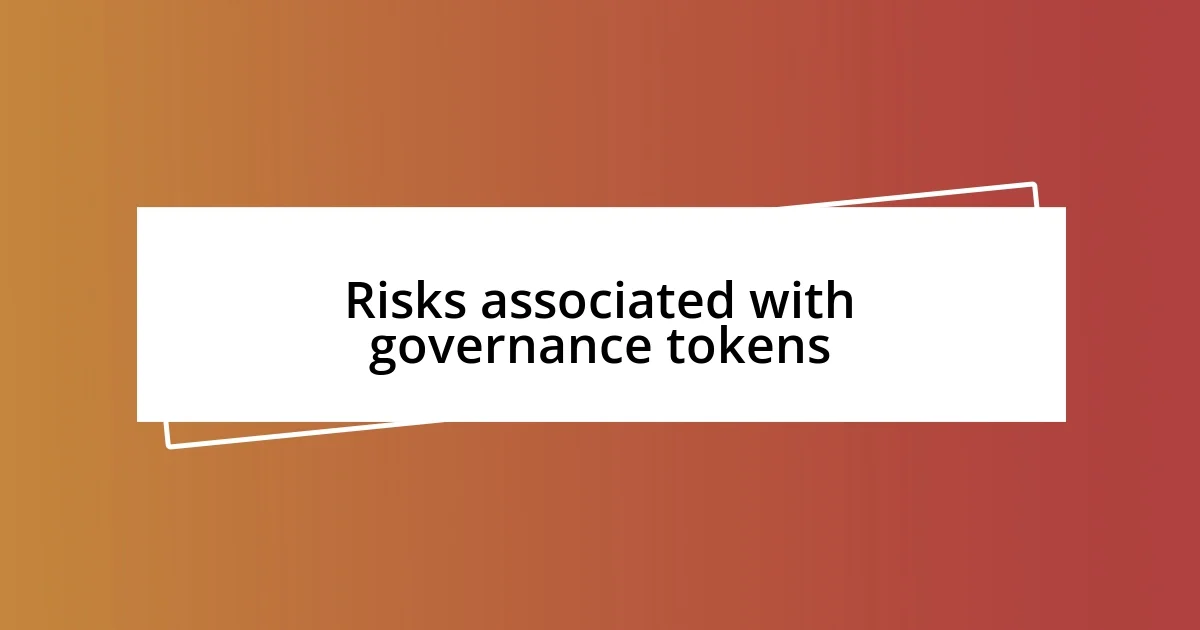
Risks associated with governance tokens
When it comes to governance tokens, the risks can loom large, often unexpectedly. I’ve personally grappled with the issue of concentration of power, where a small group of holders can exert disproportionate influence over decisions. There was a moment when I realized that my voice in a proposal was dwarfed by a few major holders, prompting me to question whether true democratic governance was at play. Have you ever felt sidelined in a vote that mattered?
Another significant risk involves market volatility. I recall a situation where a sudden price drop of a governance token I held caused panic among many voters, including myself. This emotional turmoil often leads to hasty decisions that may not align with the long-term vision of the project. Isn’t it a bit alarming how the fluctuations of a token can sway important governance outcomes? It made me reflect on how our attachment to the financial aspect can overshadow the pivotal governance discussions at hand.
Lastly, I can’t overlook the implications of inadequate information and transparency. In one instance, I voted on a proposal that I later discovered lacked critical context, making me feel uncertain about my choice. It highlights the necessity for clear and accessible information, as poor decisions stemming from insufficient knowledge can negatively affect the entire community. Have you ever regretted a decision in hindsight, wishing you had done more digging? I’ve learned that being well-informed is crucial to navigating the risks tied with governance tokens.


